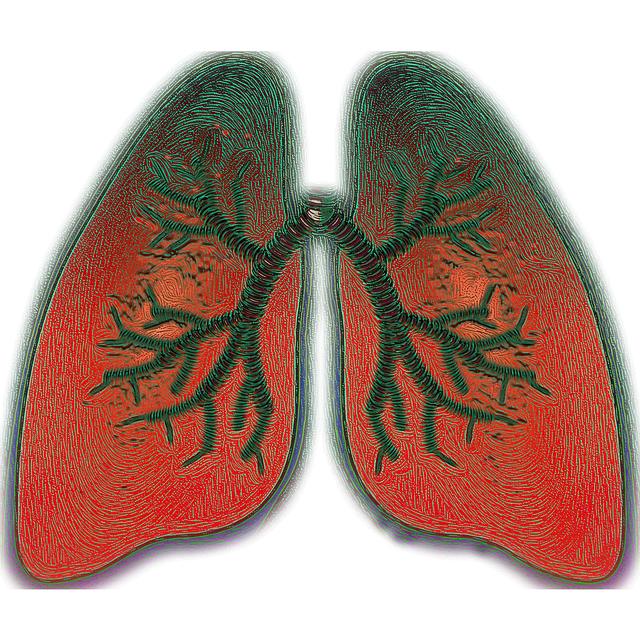Table of Contents
III. Lung Scarring & Infections
V. Increased Risk of Depression
Tens of millions of people live with asthma throughout the United States. This common chronic lung disorder causes inflammation and narrowing of the airways. Asthma symptoms vary significantly from person to person. Some people may only experience symptoms a few times a year, while others are affected by this disorder every day.
There is no cure for asthma, but there are several medications available to help with symptoms, including Singulair (montelukast), Symbicort Inhaler (budesonide/formoterol), or Ventolin Inhaler (salbutamol). If your asthma is not well controlled, you may experience several unpleasant symptoms, including:
- Coughing
- Tight feeling in the chest
- Difficulty breathing
- Wheezing
Asthma attacks occur when your symptoms are triggered, and you suddenly experience breathlessness. It is important to stick to your medication routine to prevent the occurrence of asthma attacks. Asthma may continue throughout a person’s life, and several long-term complications can occur. Read on to learn more about possible complications of asthma. [1] Bronchoconstriction occurs when the bronchi and bronchioles narrow. Smooth muscles around the airways will constrict, making exercise and other physical activities challenging. A large majority of asthma patients have exercise-induced asthma and the ability to exercise may lessen over time. If your bronchoconstriction becomes chronic, it can lead to a decrease in exercise tolerance. Research has found that people with severe asthma participate in less physical activity than those without asthma. Severe asthma patients take 31% fewer steps a day and engage in 47.5% fewer minutes of moderately intensive activity. If you cannot participate in regular exercise due to severe asthma, you may be at a higher risk of developing obesity, diabetes, and high blood pressure. It is essential to get your asthma symptoms under control early in your illness so that you can prevent severe bronchoconstriction down the road. [2] If you have uncontrolled asthma for a long period, you may experience airway remodeling. Permanently narrowed airways can create symptoms similar to chronic obstructive pulmonary disease (COPD). If the airways become permanently constricted, your asthma symptoms will become more severe and unmanageable. It can affect both large and small airways, creating permanent structural changes. This can result in the progressive loss of lung function. The only way to avoid this condition is through proper asthma control. If you follow your asthma treatment plan and lead a healthy and active lifestyle, you may be able to avoid airway remodeling. [2] If your lungs are constantly experiencing bronchoconstriction and lung inflammation, your lungs may become damaged. These conditions lead to an increase in mucus production, causing the lungs' cells to release chemicals known as cytokines. Cytokines regulate inflammatory responses in the body. Excess mucus can become lodged in the airway and make symptoms like coughing and wheezing more pronounced. If you have more mucus in the lungs, you are at a higher risk of developing infections like pneumonia. If you experience many lung infections, infectious material can become trapped in the lungs and cause lung scarring. Lung scarring is irreversible. [2] If you have severe asthma, your risk of respiratory failure increases. Respiratory failure occurs when not enough oxygen gets to the blood. Severe asthma complications are rare, but symptoms get progressively worse over several days, so you may not notice immediately if you are experiencing respiratory failure. If your breathing becomes uncontrollable, you should seek medical care immediately. The Centers for Disease Control reports that nine people die from asthma every day in the United States. The majority of these deaths are preventable with proper treatment. If you have lived with asthma for a long time, you know what your typical symptoms feel like. Respiratory failure feels similar to extreme breathlessness, like your body cannot get a full breath. If your symptoms feel more severe than normal, you may want to talk to your doctor to control your asthma condition. [3] Several studies have found that there is a link between depression and asthma. Depression and anxiety can trigger symptoms of asthma and make it more difficult to control. Studies have found that asthmatic children who suffer from psychological distress require more medication than children without asthma. Anxiety and depression can disturb the body's balance of hormones and brain chemicals. Having these mental conditions can set the stage for other diseases and may fuel possible asthma attacks. Depression can also hamper the immune system and make it more difficult to fend off viruses and other respiratory infections. Depression and asthma can go hand in hand because asthma may inhibit social activities. This can make people feel isolated and possibly increase the risk of depression. If you have asthma and notice a change in your mood, talk to your doctor about your mental health. [4] The content provided in this article is based on thorough research and in some cases, reviewed by a medical professional. Our goal for the information is to provide helpful, general health informational. It is not intended as a substitute for professional medical advice.
Reduced Exercise Ability
Airway Remodeling

Lung Scarring & Infections
Respiratory Failure

Increased Risk of Depression
